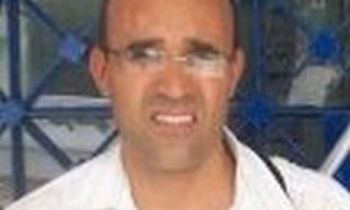Has the home page eclipsed the front page as the go-to place for breaking news and highly touted exclusives?
News executives say yes, that on many days and for many stories, their dot-com properties have started to supersede their traditional news products.
The shift is being driven by improved broadband and wireless technology, which makes Web video and text more accessible and allows people to get news when and where they want it, whether it's on their home or office computer, on the road via handheld wireless device or by cellphone.
The technological revolution is generating fierce competition. As a result, newspaper editors who once saved their best stuff for Page 1, and television producers who held it for the evening news, are increasingly moving quickly to the Web so they don't get scooped.
Even local news outlets are erasing decades-old news deadlines and merging online and traditional news teams into 24/7 operations.
"When we have breaking news, we break it online," says Charlotte Atkins, editor of the Rome (Ga.) News-Tribune, a 20,000-circulation morning paper. "We use our print edition to paint a more thorough picture of what has happened in photos and storytelling."
Atkins says newspapers "that wait 12 to 24 hours to tell their readers what's happening in their community are doing a disservice. I am amazed at papers that run headlines and stories that are a day old. That gives the impression that newspapers are outdated."
Mark Lukasiewicz, who runs NBC News' digital media, says the "public expects to know things rapidly. They know they have many places to get that information, so they are less tolerant of being told to wait for the evening news."
So on Feb. 6, when MSNBC reporter Bob Sullivan broke a story about nationwide credit-card identity theft, MSNBC.com posted it at 1:56 p.m. ET. Four hours later, NBC News correspondent George Lewis told the story on Nightly News.
"You don't hold back," says NBC News chief Steve Capus. "This is a day and age where you need to get news out there. People expect it."
That said, although the Web is changing the dynamic inside mainstream news outlets, "the fundamentals of the decision-making have been in place for a long time," says Rome Hartman, executive producer of The CBS Evening News.
He notes that CBS News executives have always had to grapple with the question of how to handle breaking news and exclusives by asking, " 'Do we give this to CBS Radio or hold it for (the EveningNews at) 6:30, or how much do we share with affiliates in advance of our broadcast?' "
Similarly, NBC producers began asking the same kinds of questions a decade ago, when the network got into cable news with MSNBC, Capus says.
Specialized websites, in growing competition with mainstream news outlets, need to break stories to generate a fan base. So those start-ups try to break news online whenever they can and on a moment's notice.
That means that to compete, mainstream news outlets, when they have exclusives, "have to break news on the Web if there is a chance that someone else is on to a story," says Joe Strupp, a reporter for Editor & Publisher.
On Feb. 19, USATODAY.com posted an exclusive interview with Giants baseball slugger Barry Bonds in which he said he would retire after the 2006 season.
"We posted that in the early evening," USA TODAY editor Ken Paulson says. "That generated extensive coverage in the media, most of which credited USA TODAY. We then gave our readers an extended interview and full details in the next day's paper."
Says Paulson: "We're increasingly inclined to put our scoops on the Web before publication in the newspaper. Our guiding principle should be to serve our readers first, getting news and information out as quickly as possible. It's also true that some stories just work better in print, particularly enterprise and investigative work with multiple elements and greater depth and length. The key is to tailor the content to the platform."
Posting a story on the Web can also drive readers and viewers to a news outlet's mainstream products, says Michael Clemente, executive producer ABC Digital Media. Last week, Brian Ross broke a story on ABCNEWS.com about improvised explosive devices being made in Iran – then reported more of the story, including reaction from President Bush, on World News Tonight.
Posting news on the Web often "actually creates more people interested in seeing the full story or knowing more, with strong word of mouth," Clemente says. "There is no question that the front page of the paper or the lead of World News Tonight with an exclusive is a big thing and will remain a significant accomplishment on any day. But now the bragging rights are nearly as strong when you break a story in any part of the 24/7 period, ahead of any other news organization – with the facts well lined up."
Perhaps, but old habits die hard with some mainstream media veterans, says Bill Keller, editor of The New York Times. "Not all reporters find that breaking news on the website gives them the same satisfaction as breaking it on the front page," Keller says. "And we still save a good number of exclusives for print. But the shift is underway."









